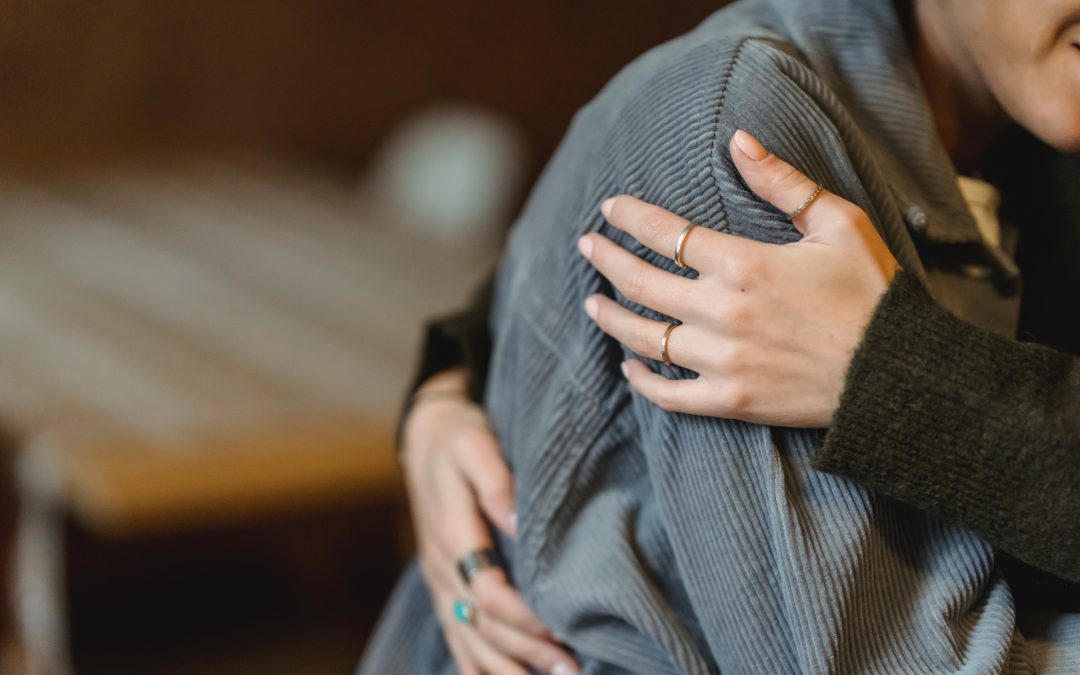When a friend comes to you with suicidal thoughts, it can be scary.
You’re grateful they came to you, and of course you want to help. But you’re not a trained mental health professional. Maybe you’re afraid of saying the wrong thing and making the problem worse. Maybe you feel overwhelmed or in over your head.
It makes sense that you want to get extra support to help your friend stay safe.
At the same time, calling 911 for support in a mental health crisis can be a risky decision. Law enforcement officers in the United States aren’t trained to manage or de-escalate mental health crises. In fact, most states only have one or two counties with comprehensive crisis intervention training. Many states have no mandatory training at all. Beyond that, the training they do get is not proven to be effective in practice,
The unfortunate reality is that police intervention can be dangerous or even lethal for people experiencing a mental health crisis. Especially if they are Black or brown.
Luckily, there are other options for support available.
Do you know how to respond if a friend comes to you with suicidal ideation?
Not all suicidal thoughts are an immediate crisis, although they should all be taken seriously and treated with respect. Broadly speaking, there are two types of suicidal thoughts:
- Passive suicidal ideation: Having thoughts of suicide, but no plans or intention to act on them. These often do not mean that a person wants to take their own life. They may be experiencing a mental illness such as depression, or high levels of psychological distress.
- Active suicidal ideation: Not just thinking of suicide, but actively considering or making plans to act on those thoughts. These are sign that someone is likely experiencing a mental health crisis and may need additional support to stay safe.
When someone with suicidal thoughts is not in immediate danger, having a compassionate person to talk to is enormously helpful. We like these tips from NAMI on how to talk to someone having suicidal thoughts.

Why is it so hard for people struggling with suicidal thoughts to reach out for help?
There are a lot of potential barriers to seeking care for people struggling with suicidal ideation, including:
- Fear of judgment: There is still a lot of stigma attached to seeking mental health care, particularly for those seeking help with suicidal ideation.
- Problems accessing care: Struggling to know where to look for support and long waiting lists for mental health care can make timely support difficult.
- Fear of violence: From abusive family, law enforcement, or medical professionals.
- Cultural values that prioritize individualism: American culture values “pulling yourself up by your bootstraps” and undervalues community and mutual support.
- Fear of being hospitalized against their will: Hospitalization, especially when involuntary, can be a traumatic experience and do little to treat the underlying mental health concerns.
- Normalized mental health issues: If no one in your family seeks treatment, poor mental health or mental health struggles can be seen as “just the way it is”.
- Systemic violence or oppression: Previous negative interactions with racist, patriarchal care systems can create skepticism about seeking care. In fact it may have contributed to the problem in the first place.
Where can you turn for support instead of law enforcement?
There are real risks inherent in deploying police to a mental heath crisis. We take the position that it’s best to exhaust other options before seeking help from 911 whenever possible. We realize that the risk/benefit analysis is unique to every situation. This can be an incredibly difficult call to make in the moment when a loved one is struggling.
Fortunately, resources do exist! We encourage you to educate yourself about what is available in your area. If and when the time comes, you’ll be prepared.
“Don’t Call the Police: Community based alternatives to police in your city”
What they’re all about:
“We founded dontcallthepolice.com to provide easy access to alternatives to calling the police when faced with a situation that requires de-escalation and/or intervention, and can be best managed by a community-based crisis response provider. In identifying resources for this page, we focus on organizations that provide emergency or crisis services, in order to best target the type of immediate concerns that most often lead people to call the police or 911.”
How to use: Looking for resources? The home page has a directory organized alphabetically by city name, as well as national resources. Hit CRTL+F and type in the name of your city to find resources in your community.
In addition to resources for mental health, they also offer crisis resources for domestic violence, housing, sexual assault, and more.
The Trevor Project:
LGBTQ+ youth are four times more likely to attempt suicide than their cisgender, heterosexual peers. This resource provides:
- 24/7 access to LGBTQ competent + affirming crisis counselors via text, call, or instant chat.
- TrevorSpace: an international community for LGBTQ young people ages 13-24 to explore identity, get advice, find support, and make friends in a moderated community intentionally designed for them.
- A Resource Center for information on sexual orientation, mental health, gender identity, community, and talking about suicide.
Mobile Crisis Teams and Crisis Walk-In Services:
A mobile crisis team is a group of professionals, including clinicians, social workers, and peer advocates, who are trained to respond to a crisis situation. They’ll come to your location to deescalate a crisis and provide resources for ongoing support. Mobile crisis teams are proven to reduce incarceration and hospitalization of folks experiencing mental health crises.
To find a local mobile crisis team, Google “mobile crisis team response” and your city or county. Pro-tip: This is a great number to have saved in your phone; you never know when you might need it.
Having trouble finding a local resource? Try calling 988, the the nationwide number for suicide and mental health crisis response. They will work to help descalate a crisis over the phone. They can also help you access local community based resources, including crisis walk-in clinics that can provide same-day evaluation and support.
You may be aware of some controversy surrounding 988 on social media. This is related to a small number of calls that do eventually end up getting routed to law enforcement, a problem that’s more likely in areas that still lack mobile crisis resources. Our assessment: Despite these concerns, 988 is overall a much better option than calling 911 — or than doing nothing — in a mental health crisis situation.
If your community doesn’t have a mobile crisis team, you can work to aid suicide prevention in your community by urging your members of Congress to support Mobile Crisis Teams.
Walk Into Your Emergency Room:
You can walk into your local ER to receive medical and mental health assessment in a crisis situation. If your loved one is willing and able to go together, this can be a safer and less traumatizing experience than being transported to the hospital by police.
Be aware that if your friend is assessed to be a serious, imminent danger to themselves, they may be involuntarily hospitalized, typically for a period of 72 hours (although this can be extended). Other possibilities may include receiving crisis counseling or medication to stabilize the current situation, or referrals to other resources such as therapy, a psychiatrist, or other more intensive levels of care.

What else you can do for suicide prevention:
Suicide prevention isn’t just about getting emergency support in dire situations. It comes from an affirming and supportive community, which you help to create. Things that help build this supportive ecosystem and help create a life-affirming culture include:
- Using people’s correct pronouns and name they provide you with
- Taking an extra minute to talk to a friend who seems upset
- Sharing extra resources like food or money when you can, helping to normalize a community of asking for help and mutual aid.

About Stella Nova
Stella Nova Psychology is a team of therapists, psychologists, and social workers providing support for women & nonbinary professionals in San Francisco and online throughout California. We specialize in treating therapy for depression, anxiey, burnout, and other common mental health concerns, with a focus on treating BIPOC and LGBTQ+ individuals. Stella Nova also offers therapy for couples of all genders and orientations, including nonmonogamous relationships.
Therapy for Depression, Trauma, and More
Looking for extra support for your or a friend? Stella Nova offers online therapy for individuals and couples virtually throughout California, and in-person in San Francisco. Our team can provide online therapy for depression, anxiety, stress, burnout, chronic pain, and more. We’re a BIPOC and LGBTQ+ owned and operated clinic that strives to provide an affirming, safe healing space for every one of our clients.
Sign up for a free consultation to get matched with a great-fit therapist today!

